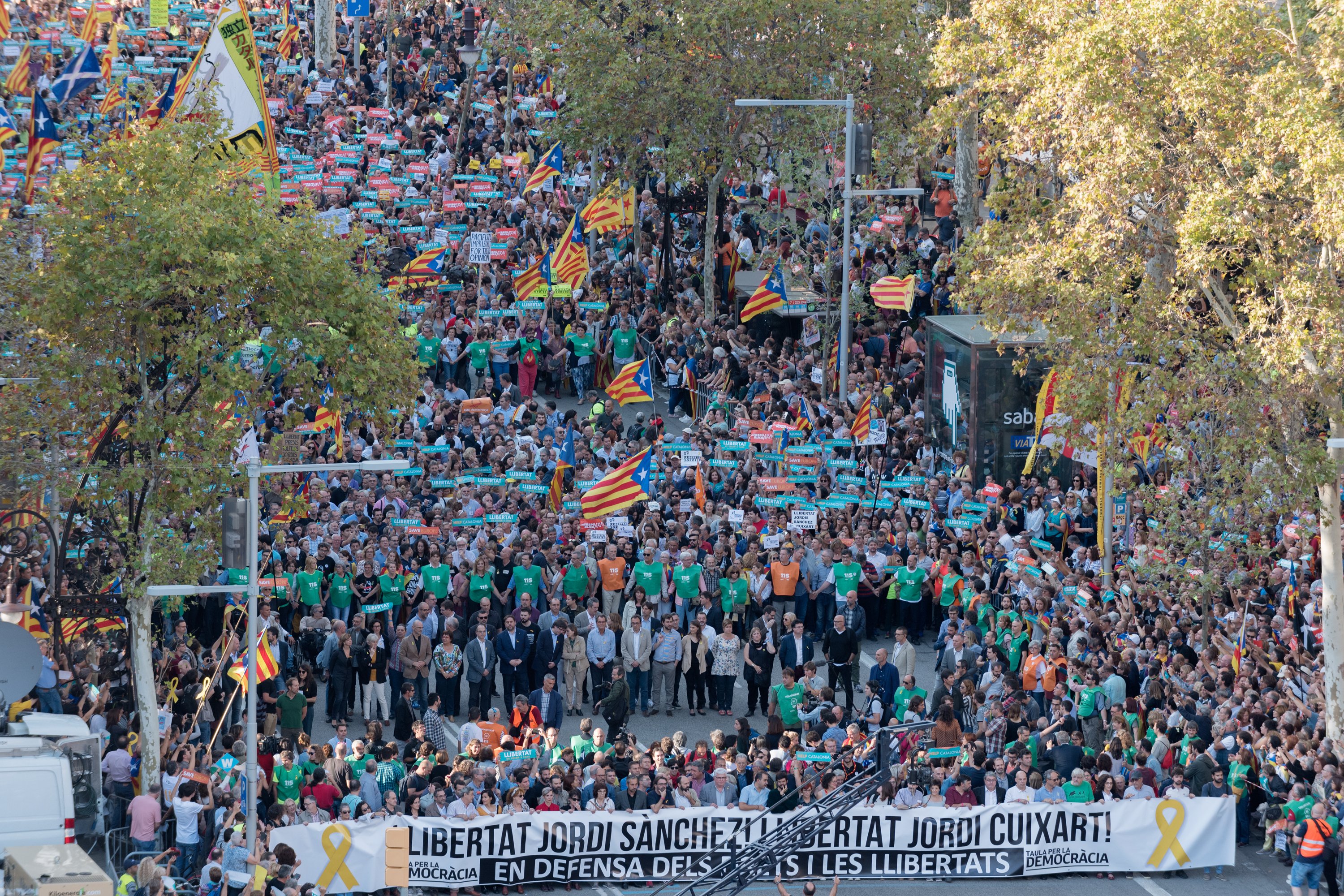The Elcano Royal Institute for International and Strategic Studies has released a report on the Catalan independence process which doesn't rule out the possibility of "further mobilisations in the streets", like a Catalan Euromaidan. The reference is to the wave of pro-European demonstrations in Ukraine which started on 21st November 2013 in Kiev's Maidan Nezaleshnosti (Independence Square) which started after Viktor Yanukovych's government stopped preparations for signing the Ukraine-European Union Association Agreement.
The Elcano Institute is the think tank of reference for the Spanish government. In general, the report, entitled "Catalonia’s independence bid: how did we get here? What is the European dimension? What next?" in the official English translation[1], concurs with the Spanish governments arguments on the situation in Catalonia and the consequences of a declaration of independence.
In its conclusions, the report says that the Catalan population is split roughly in half on the topic of independence, according to the latest surveys, but that "such a divisive stalemate could be [overcome] by devising a new form of [compromise] within Spain". They quote a recent GESOP (Cabinet of Social and Public Opinion Studies) survey published by El Periódico which shows that constitutional reform and improvements to self-governance are the preference of the majority.
The report's authors believe that "without external support, with Catalans deeply divided and with no chance of effective territorial control by the Catalan government, Spain is not on the point of disintegration". Nonetheless they say that "the territorial crisis [is very deep and will be protracted]". They conclude that "although the case for [and feasibility of] a Catalan secession are weak, it is obvious that some kind of political compromise will be required to encourage 50% of the Catalan population to be comfortable within the Spanish state.
Uncertainty factors
The document says that recent events have produced "much uncertainty". Among them it cites the 1st October "[pseudo] referendum (...) with a declared 40% turnout and a widely criticised over-reaction by the National Police and Civil Guard"; "a situation of high social unrest and the political mobilisation of the pro-union segment of Catalan society"; "the exit of many of the most important Catalan companies"; "the threat of a unilateral declaration of independence" and the Spanish government announced turn to "article 155 of the constitution (...) which may lead to the partial suspension of self-government", something it describes as "federal coercion". The final factor in the list turns more to the future: "the possibility of further mobilisations in the streets (the Catalan Maidan?), which cannot be ruled out". Nonetheless, they believe that "these events also provide an important window of opportunity" after the PP (Popular Party) and PSOE (Spanish Socialist Workers' Party) have announced the possibility of constitutional reform.
Institute researchers admitted to journalists on Tuesday that the images of police using force to prevent the 1st October independence referendum were "an image disaster without cure", to use the words of Ignacio Molina, but they also believe that the damage is being "reverted" by the Spanish state, reports Europa Press.
The full original document is consultable below, the English version available through the link above:
[1] Translator's note: In some places I've decided to edit the official translation to bring it closer to the original Spanish (indicated by square brackets).

